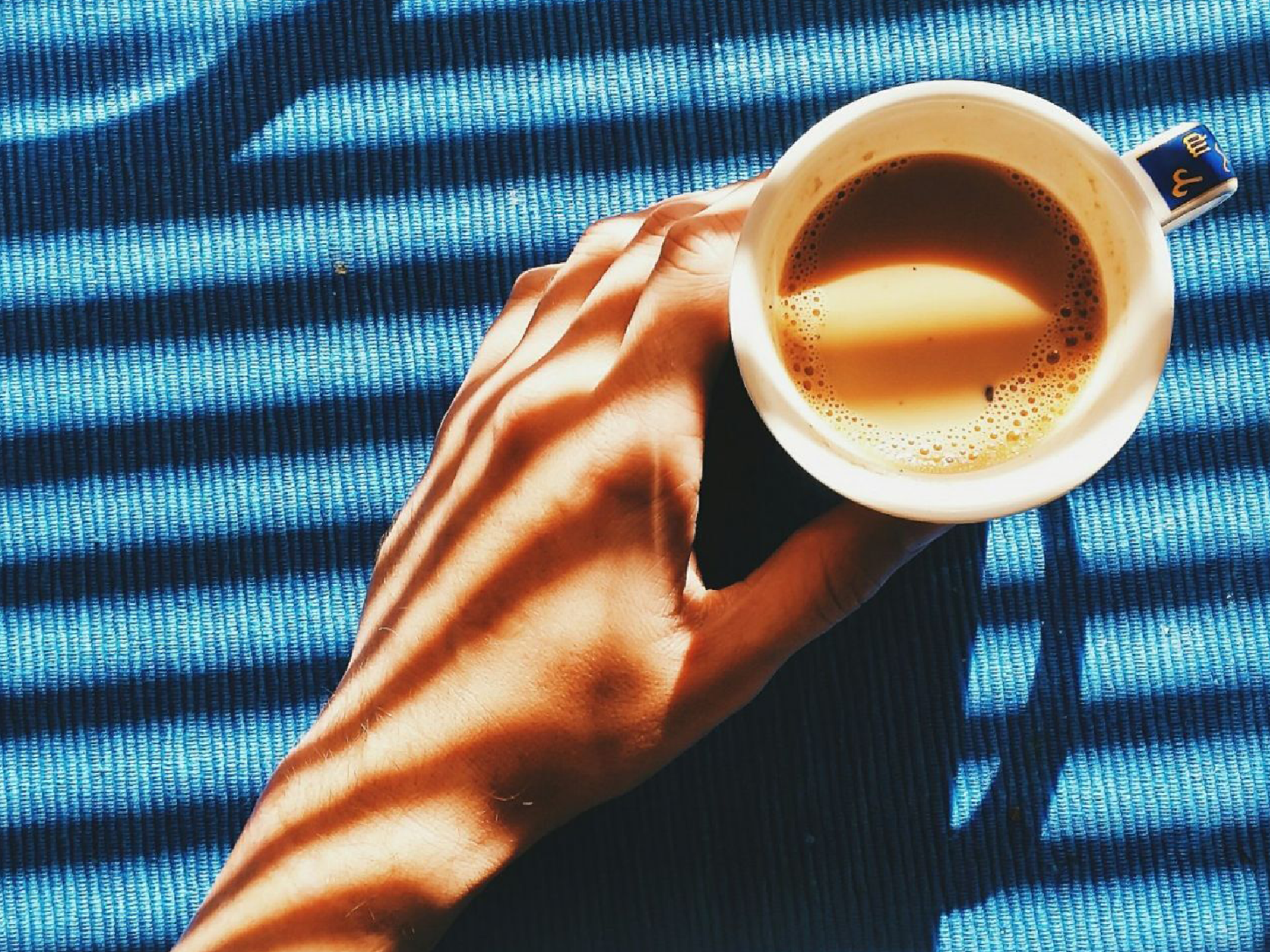
Plenty of people look to tea and coffee to get them through tired mornings and busy days. But what are the pros and cons of relying on caffeine? And which drink has the highest amounts of caffeine?
Ah, caffeine. That seemingly vital life force that helps to wake us up in the morning and keeps us alert through even the most stressful days of working from home.
If you’re a caffeine-drinker, whether you take it in the form of a frothy cappuccino or a comforting mug of tea, chances are you can’t imagine going a day without it. But does one of these brews have more caffeine in than the other? And, for that matter, should we really be drinking all that much of the stuff anyway?
We turned to registered nutritionist Clarissa Lenherr and holistic nutritionist and health coach Cheryl Telfer to get the facts. Here, they explain the benefits of caffeine as well as all of its potential downsides, and reveal whether tea or coffee offers the biggest caffeine boost.
You may also like
Caffeine sensitivity: 8 signs your body could be sensitive to coffee or tea
What are the benefits of caffeine?
One of the main reasons people turn to tea and coffee is that it keeps them feeling awake and switched on. This, says Cheryl, has to do with the ways in which caffeine works to “block the effects of adenosine, which is a neurotransmitter that relaxes the brain and makes you feel tired.”
There may be some impressive health benefits that come with imbibing these beverages, too.For example, Cheryl tells us that “research shows moderate coffee consumption can help increase beneficial gut bacteria.”
Caffeine also “contains polyphenols,” says Clarissa, “a type of antioxidant which may potentially play a preventative role against cardiovascular disease and diabetes,” and it is even thought that “caffeine can increase physical strength and stamina.” However, “more human studies are required to provide clear evidence of caffeine’s health benefits,” she says.

Regardless of any potential benefits, though, Clarissa reminds us that “it is still advised to stick to the NHS recommendation of 400mg or less per day.”
What are the potential downsides of having too much caffeine?
Many people drink a cup of tea or coffee at least once a day. But, while they may offer both long- and short-term benefits, there are definitely reasons to keep your consumption fairly low, because caffeine comes with side effects.
In some people “too much caffeine can trigger mood changes, headaches, insomnia, digestive upset, and impact heart rate and blood pressure levels,” says Clarissa. The degree to which you experience these sorts of effects can depend on a range of factors, including “your genes and liver enzymes, which influence how quickly or slowly you metabolise and clear out caffeine.”
You may also like
Want to cut down on coffee? Try these natural alternatives
It is also true that, as Cheryl explains, “too much caffeine can disrupt sleep.” So, while it has its benefits as a stimulant, drinking a cup too many or having a brew too late in the day has the potential to “delay the timing of your body clock,” keeping you awake at night.
Not to mention the fact that you are likely to “develop a tolerance similar to other drugs or alcohol” if you drink tea or coffee daily, says Cheryl. This means that, “after a while, the body requires more and more caffeine to produce the same effects of alertness,” which in turn increases your chances of experiencing the negative side effects.
Does tea have more caffeine in it than coffee?
There’s not really a clear cut answer to this question, because “caffeine levels vary significantly depending on the preparation and source,” says Clarissa. With tea, for example, “white tea has the least caffeine whereas matcha green tea has the highest.” Plus, “the longer your tea is stewed in hot water, the higher the amounts of caffeine.”

In coffee, the levels of caffeine really depend on the preparation. As Clarissa explains, “freshly brewed coffee contains the highest amount of caffeine, followed by espresso and then instant coffee.”
Generally speaking, though, “tea leaves contain 3.5% caffeine while coffee beans have 1.1 to 2.2.% caffeine,” says Cheryl. This does not necessarily mean your tea offers a bigger caffeine hit, though, because “the coffee brewing process uses hotter water, which extracts more of the caffeine from the beans, and more coffee beans are used than you’d use tea leaves for a drink.”
Follow @StrongWomenUK on Instagram for the latest workouts, delicious recipes and motivation from your favourite fitness experts.
Images: Getty
Source: Read Full Article